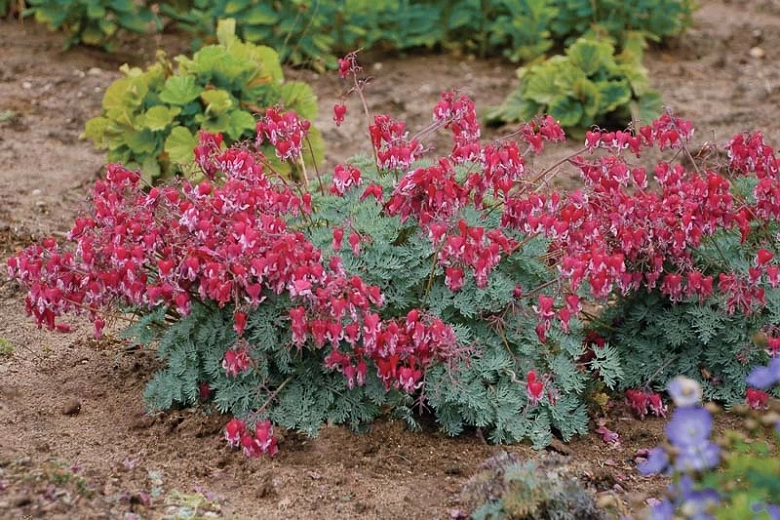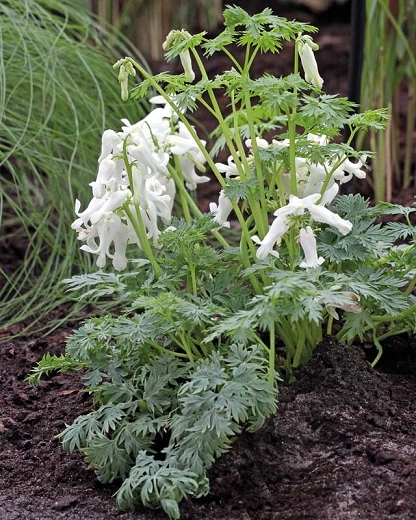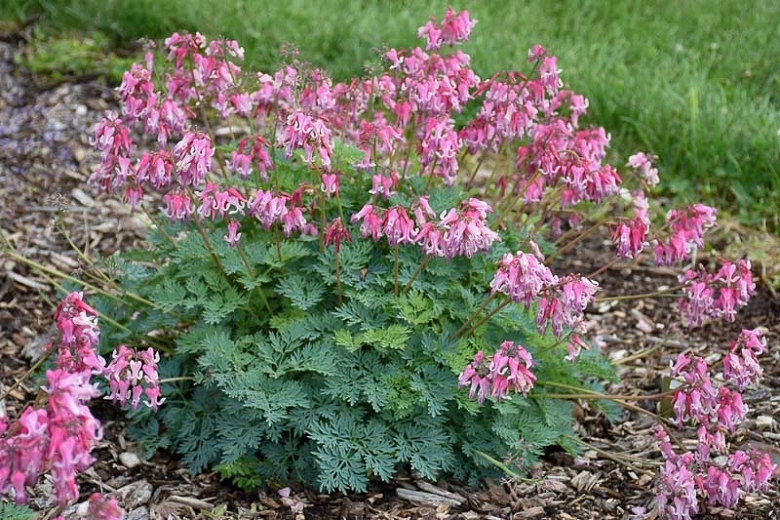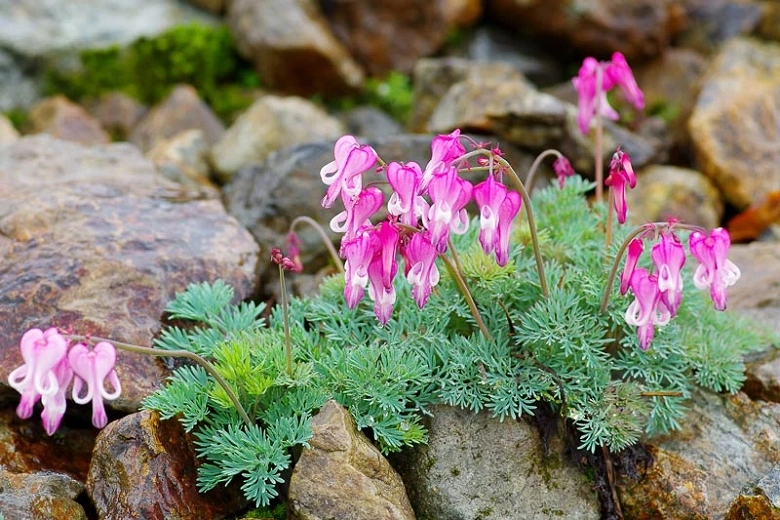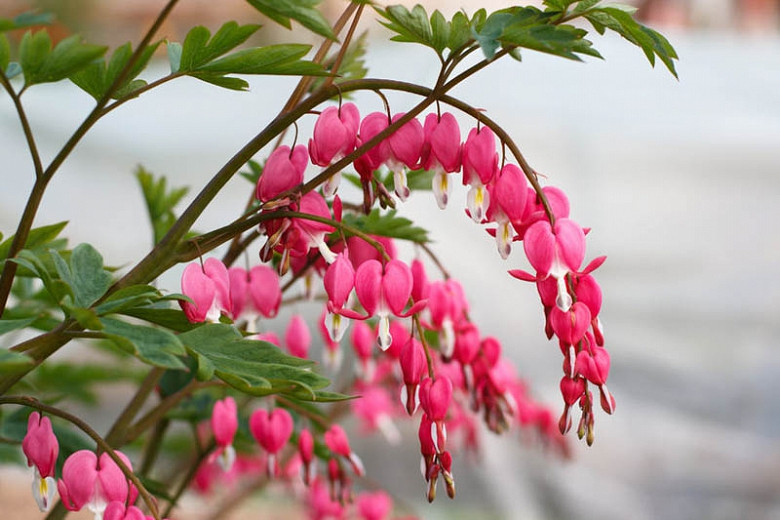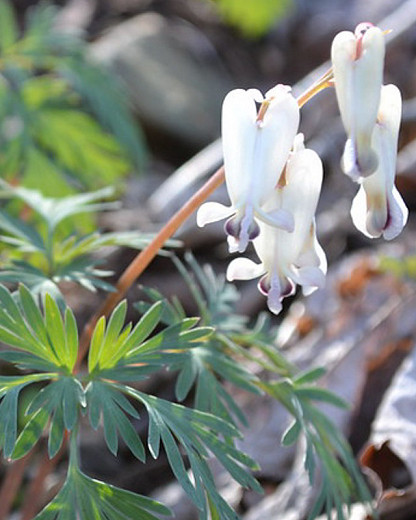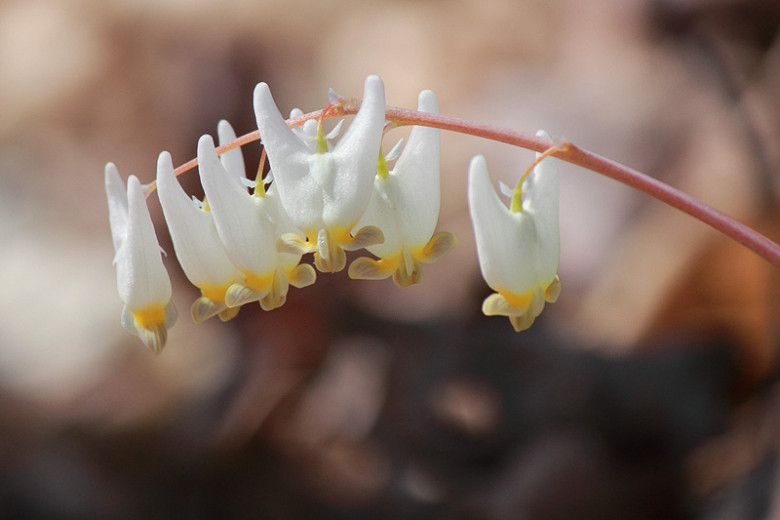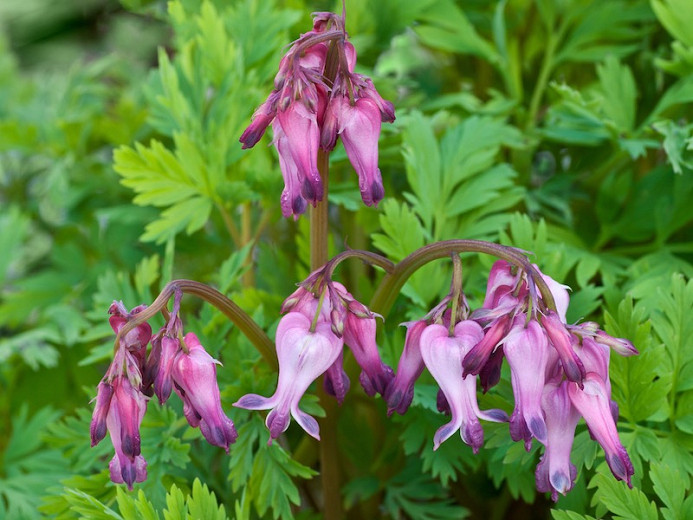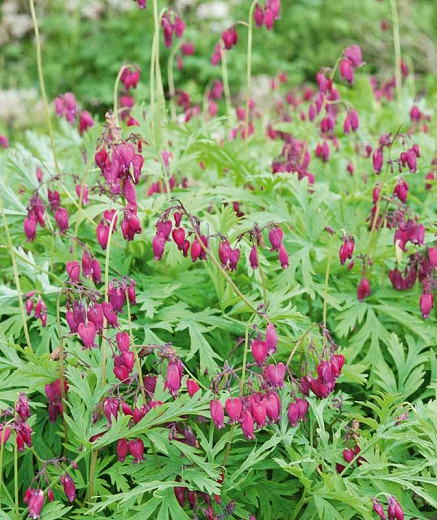Dicentra Fire Island (Fern-Leaf Bleeding Heart)
Popular since its introduction, Dicentra ‘Fire Island’ (Fern-Leaf Bleeding Heart) is a compact perennial noted for its beautiful fern-like frosty blue foliage and its profusion of flaming magenta red flowers. Blooming over a long season extending from late spring to midsummer, the heart-shaped flowers, adorned with white tips, dangle gracefully above the foliage mound, which remains fresh-looking throughout the growing season.
Popular since its introduction, Dicentra 'Fire Island' (Fern-Leaf Bleeding Heart) is a compact perennial noted for its beautiful fern-like frosty blue foliage and its profusion of flaming magenta red flowers. Blooming over a long season extending from late spring to midsummer, the heart-shaped flowers, adorned with white tips, dangle gracefully above the foliage mound, which remains fresh-looking throughout the growing season. The blossoms attract bees and hummingbirds. Unlike other bleeding hearts, this alpine-type bleeding heart is not a woodland plant. Give it more sun than you would typically give a bleeding heart flower, and you will be rewarded with stronger growth and more blooms.
- Grows up to 12-15 in. tall (30-37 cm) and 18-24 in. wide (45-60 cm).
- Thrives in part shade and is easily grown in fertile, humus-rich, preferably neutral or slightly alkaline, moist, but well-drained soils. It can be grown in full sun provided the soil is kept consistently moist. Do not plant in heavy clay soils as it does not do well in wet.
- Great for beds and borders, cottage gardens, rock gardens, containers, underplanting shrubs, or as a ground cover
- No serious pest or disease issues. Deer resistant
- Propagate by division in early spring or after the leaves have died down.
- If ingested, all parts may cause stomach upset, the foliage may aggravate skin allergies. Wear gloves and other protective equipment when handling. Bleeding Heart plants are not only toxic to humans but to animals as well. Although aesthetically pleasing, this plant contains soquinoline alkaloids. Alkaloids negatively affect animals, most commonly cattle, sheep, and dogs.
Requirements
| Hardiness | 3 – 9 |
|---|---|
| Climate Zones | 1, 1A, 1B, 2, 2A, 2B, 3, 3A, 3B, 4, 5, 6, 7, 8, 9, 14, 15, 16, 17, 18, 19, 20, 21, 22, 23, 24 |
| Plant Type | Perennials |
| Plant Family | Dicentra – Bleeding Hearts |
| Exposure | Full Sun, Partial Sun |
| Season of Interest | Spring (Late)Summer (Early,Mid) |
| Height | 1' – 2' (30cm – 60cm) |
| Spread | 1' – 2' (30cm – 60cm) |
| Spacing | 18″ – 24″ (45cm – 60cm) |
| Water Needs | Average |
| Maintenance | Low |
| Soil Type | Clay, Loam, Sand |
| Soil pH | Alkaline, Neutral |
| Soil Drainage | Moist but Well-Drained |
| Characteristics | Showy |
| Tolerance | Deer |
| Attracts | Bees, Butterflies, Hummingbirds |
| Garden Uses | Beds and Borders, Ground Covers, Patio and Containers, Underplanting Roses and Shrubs |
| Garden Styles | Gravel and Rock Garden, Informal and Cottage |
